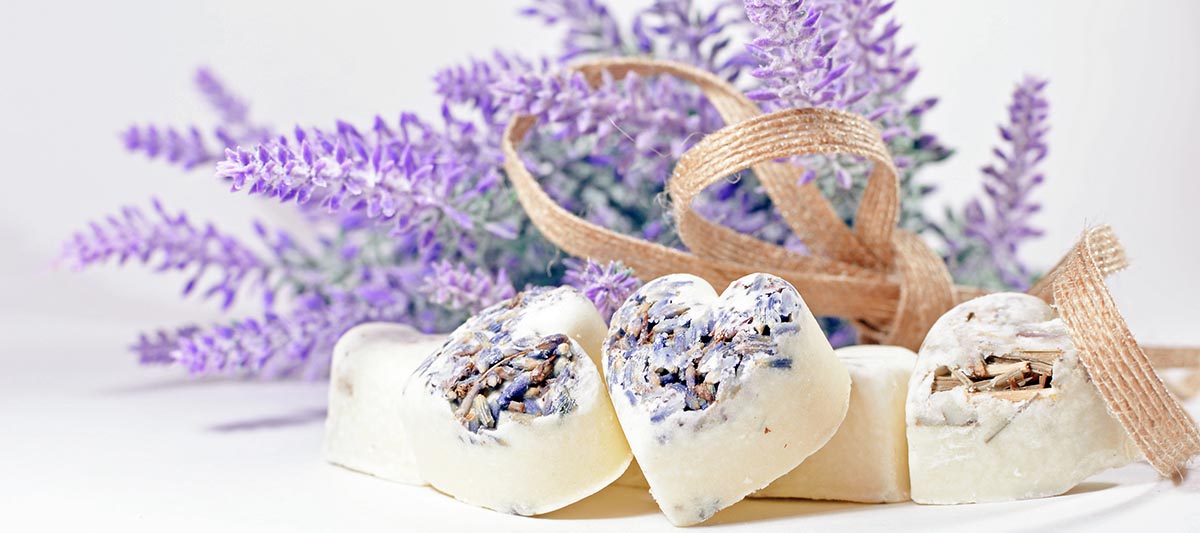The world of smells is always all around us. Once you have smelled something, the scent can stay in your memory forever. Even though our nose helps us to get only 2% of the generally accessible information, the signals sent by smells to our brain can’t be disregarded. It has been also proved that certain scents can influence our mood directly. This gives us the power to trick our brain with a carefully chosen signal. Do you ever feel like you need a magic wand to change your mood? Here are some ways to do it even if you are not a wizard yet!
Lavender
Lavender is known to be an amazing helper for fighting stress and anxiety. It can also work as a light painkiller. You can place a lavender bouquet or an aroma lamp with a few drops of essential oil near your bed. It will help you fall asleep faster and protect you from nightmares.

Orange and Lemon
The brightest and most positive way to refresh your mind is to use orange and lemon scents. They cheer you up and make you feel more energetic, as if it was eternal summer around you. A glass of lemonade after a hard day will power you up, so you won’t feel tired. Orange and cinnamon together will muffle you with the winter holiday’s spirit.
Vanilla
The scent of vanilla is the smell of the sweetest antidepressant. It is perfect when you need to feel happy again. One more hint: the scent of vanilla will make you stop wanting to eat something sweet constantly and therefore help you keep fit.
Coffee
The smell of coffee is known to be one of the coziest ones. If you drink coffee every morning, then you will notice that soon the odor of freshly grounded coffee beans makes you feel like it’s morning and you have enough power to live one more day through.
Mint
The scent of mint can lift your spirit up and make it easier for you to get rid of all the negative thoughts. It activates the thinking processes and helps you look relaxed, as if you just had a nap. But be careful: the fragrant mint oil helps to concentrate, while mint tea, on the contrary, will make you feel sleepy. You can add a slice of a lemon or grapefruit to it if you do not want to fall asleep in the middle of the day.
Apple
A person who suffers from headaches should always have a couple of apples nearby. Their smell helps to ease the headache and regain powers.

These are general facts. Yet, sometimes you can influence your mood by the smells that carry personal associations, and some of them can be really funny! For example, the smell of dog food might make you think of a dog that was left in your hometown after you moved to the city. The smell of an old book might remind you of book of a fairy tales which your grandma used to read aloud when you were a child. Think about it all and choose the smell that best fits the mood you would like to have at the moment.
However, you should remember that we all have absolutely different odor perception despite the fact that there are certain scents which most of us like or dislike and with which most of us may have quite similar associations. Still, there is nothing either strange about or wrong with your personal sense of smell if you cannot stand the fragrance of lavender, for example. What is more, it can make you feel really bad and, consequently, lavender aromatherapy, which is initially urged to relax you, may turn into a torture.
So, it is very important to determine what aroma is yours in order to avoid any negative effects which the unsuitable therapy can have on your mood and health.
Some Other Benefits of Aromatherapy That Will Amaze You
The unique qualities of different smells actually deserve much more attention than we generally pay to them. The list of the benefits we can get from selecting the right odors and combining them in a proper way is not limited with stress relief and positive influence on mood. See this for yourself right now!
Improving Memory
It is widely known that the human memory and sense of smell have very special and complicated connections. That is why there are some particular aromas which can help us not only to boost our memory, but also to cope with serious and even incurable memory disorders. For instance, aromatherapy can serve as one of the alternative treatments for the so-called dementias and especially for Alzheimer’s disease. The main feature of this disease is the person’s inability to remember recent events, which can cause significant problems in this person’s everyday life.
The smell of sage oil is considered one of the best natural “memory boosters” to use for slowing the progression of Alzheimer’s down.
Wound Healing
The recent German research has proved that the smell of sandalwood can help our skin regenerate better and more quickly, because human skin cells appear to have the same olfactory receptors as those which we have in our noses. The aroma activates these receptors therefore naturally hastening cell proliferation, which, in its turn, facilitates wound healing process.
Protection from Illnesses
Aromatherapy is also known and respected for a number of antibacterial effects which protect our organisms from various kinds of infections. Although the influence of different smells on human immune system is still being studied, it is claimed that the aromas of such herbs as oregano, peppermint and frankincense are packed with plenty of good qualities, which can boost our health.

Interesting Facts from the History of Aromatherapy
The art of combining smells and using them rightly for medical purposes takes its roots from very ancient times. Today it is getting more and more popular both as a real medical therapy (we have mentioned this fact above) and just as a pleasure; however, it was banned during the Middle Ages as well as other natural remedies. At that time, the Catholic church propagated the idea that any illness was a punishment sent to mortals by God, so nothing but a prayer and bleeding could save them.
Now let us discover some other facts about aromatherapy and its amazing attributes.
- It is considered that the art aromatherapy originates from ancient China. The Chinese used to burn various herbs in their temples to create the atmosphere of harmony and cajole gods.
- Hippocrates, an ancient Greek physician and the father of Western medicine, is said to rid Athens of plague with the help of aromatic fumigations.
- The first perfumes, invented by Arabians, were used to heal injuries. Later, the Crusades brought perfumes, as we know them today, to Europe.
- The very term “aromatherapy” was coined by Rene Maurice Gattefosse, the French chemist, in 1920s. He burnt his hand and had to soak it quickly into lavender oil, which appeared to be in the right place at the right time. The scientist was surprised to see that the burn on his hand healed quite quickly.
Why Aromatherapy Really Works: The Secrets of Human Olfaction
The main reason why different odors can influence our mood and even health lies in the fact that our sense of smell is directly connected with sophisticated brain processes. These processes generate particular emotions, create and store our memories and associations, and actually do many other things we rarely reflect on. Let us see what is so special about our ability to smell as well as to distinguish different scents, remember them and logically connect them with particular things, people or events.
- Every month or two (that is to say, every 30-60 days) our scent cells get renewed and we can smell better.
- The sense of smell was the first to develop in humans.
- Even before a baby is born, its olfaction is already functioning fully.
- The latest research has proved that people can smell about 1 trillion of diverse odors, including even that of fear (the scent of human sweat can indicate the emotion of fear).
- If you can smell your morning coffee and toasts, it means that you have already woken up. Our olfaction does not work when we are asleep.
- Although there are some rumors that different people may have the same fingerprints, all of us have unique odors which are determined by our unique genes.
- Loss of smell may predict future diseases.
